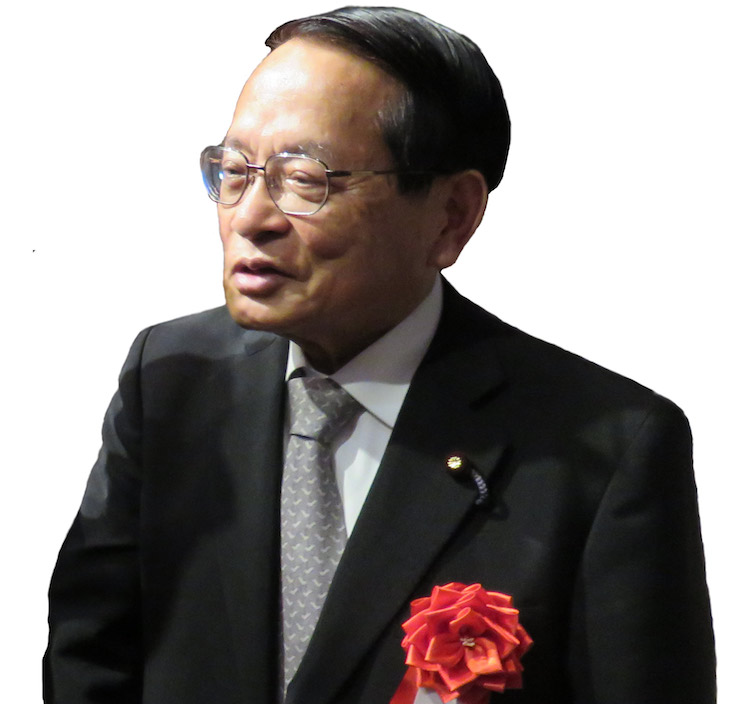Viewpoint by Katsuei Hirasawa *
TOKYO (IDN) – The world is now shaken by the terror of Islamic extremists and Japan is not unrelated to this terrorism.
Japan is an island nation that does not have a direct border with another country. We do not accept many immigrants as in Western countries and, therefore, we do not take enough counter-terrorism measures because of our peace of mind as a unified nation.
Some of us even regard large-scale terrorist attacks in many parts of the world as the opposite bank of the fire. In the past, the Asama-Sansō hostage-taking case and JAL plane hijacking by the Coalition Red Army occurred, which were theatrical crimes and were reported live on TV. Most Japanese people may have not recognised them as terrorism. SPANISH | GERMAN | HINDI | JAPANESE
In the future, many events that could be the target of terrorist attacks will be held in Japan such as, for example, the Tokyo Olympics 2020, and we therefore urgently need to adopt anti-terrorism measures.
Terrorist attacks that seemed to have been perpetrated by Islamic extremists have occurred in Japan on a number of occasions since the 1980s.
The Saudi Arabia Airlines office in Tokyo was bombed in 1988. An associate professor was killed in the University of Tsukuba in 1991 – because he had translated the novel by Salman Rushdie, the writer who was sentenced to death by Khomeini, the supreme leader of Iran’s Revolution.
In addition, a man who was arrested in Germany on terrorism charges in 2003 was found to have entered and departed from Japan many times with a fake passport. In 2007, it was also revealed in the United States that Al-Qaeda leaders were involved in the attack plan against the U.S. embassy in Tokyo.
Terror by the ‘Islamic State’ (IS) killed three Japanese nationals abroad in 2015. The Islamic State’s propaganda magazine Dabiq has declared that Japanese will continue to be targeted.
Recent terrorist attacks by IS are different from conventional terrorism. One characteristic is that followers of the same ideology in many parts of the world unleash terror in every part of the earth. A second characteristic is that they avoid strictly guarded places but choose places where many people gather. In last year’s terrorist attacks in Paris, theatres and restaurants were targeted.
Looking back at past cases, obtaining information in advance is of the utmost importance for preventing terrorism in the future. It is seldom covered as news, but security authorities in foreign countries have special powers, such as a wide range of communication interception techniques or temporary custody, which have prevented many terrorist attacks from taking place. On the other hand, the power given to Japanese authorities to control a terrorist is almost the same as that for a thief.
Currently, introduction of measures such as expansive communication interception or plea-bargaining, have been studied in Japan but they are still insufficient. In the case of serious crimes, many countries have already introduced the crime of conspiracy, which covers certain acts before an actual crime is committed, and is subject to punishment.
Introduction of the crime of conspiracy has been discussed in Japan’s Diet for more than 10 years. However, opposition parties and the Japanese Federation of Bar Associations have been against it due to the fear of human rights violations. As a result, it has not been introduced yet.
However, looking at the example of other countries, from the point of view of prevention of terrorism, the crime of conspiracy is extremely effective. In order to dispel the concerns, how about clearly defining the target crimes and introduce the crime of conspiracy in Japan as soon as possible? [IDN-InDepthNews – 16 July 2016]
This article is part of IDN’s media project jointly with Global Cooperation Council and DEVNET Japan.
* Katsuei Hirasawa is a Liberal Democratic Party Member of the House of Representatives elected seven consecutive times, and Director, Standing Committee on Budget, House of Representatives. In 2014, he chaired House of Representatives Special Committee on North Korean Abductions and Other Issues. In 1994, he was Councilor to the Commissioner General’s Secretariat of the National Police Agency.

